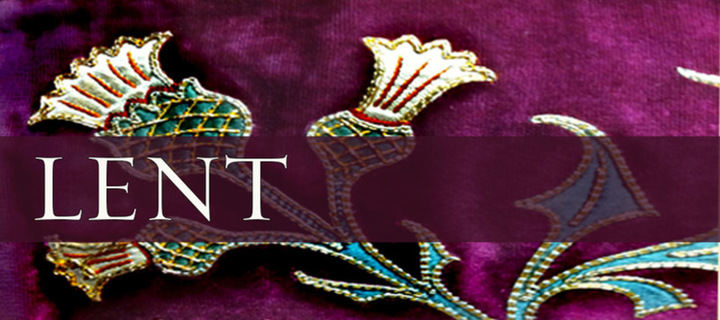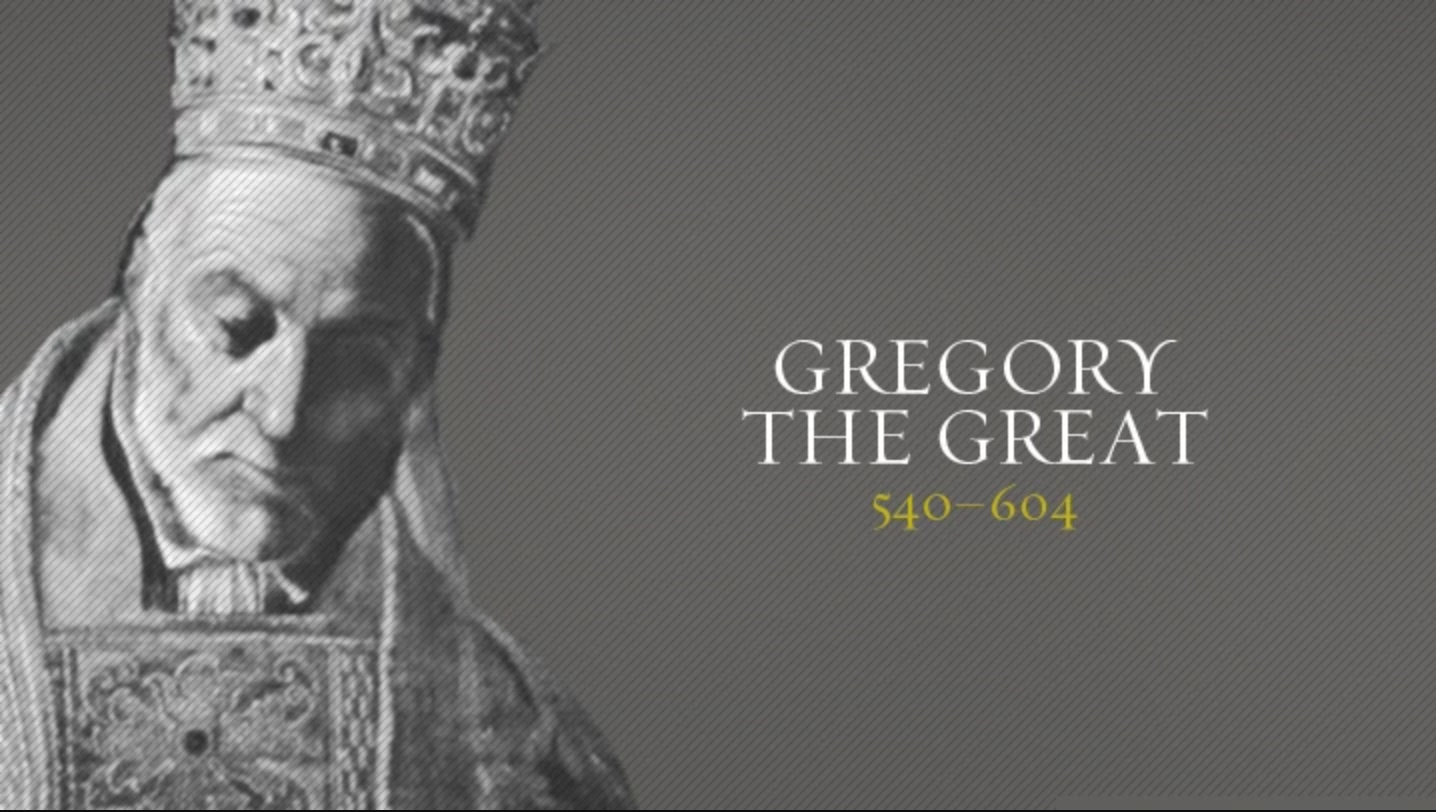
8:33 They answered him, “We are offspring of Abraham and have never been enslaved to anyone. How is it that you say, ‘You will become free’?” 34 Jesus answered them, “Truly, truly, I say to you, everyone who practices sin is a slave to sin. 35 The slave does not remain in the house forever; the son remains forever. 36 So if the Son sets you free, you will be free indeed. 37 I know that you are offspring of Abraham; yet you seek to kill me because my word finds no place in you. 38 I speak of what I have seen with my Father, and you do what you have heard from your father.” 39 They answered him, “Abraham is our father.” Jesus said to them, “If you were Abraham’s children, you would be doing the works Abraham did, 40 but now you seek to kill me, a man who has told you the truth that I heard from God. This is not what Abraham did. 41 You are doing the works your father did.” They said to him, “We were not born of sexual immorality. We have one Father—even God.” 42 Jesus said to them, “If God were your Father, you would love me, for I came from God and I am here. I came not of my own accord, but he sent me. 43 Why do you not understand what I say? It is because you cannot bear to hear my word. 44 You are of your father the devil, and your will is to do your father’s desires.
– John 8:33-44
Family is a beautiful, wonderful thing, isn’t it? Relationships are nurtured, cherished and sustained, woven in threads of love, trust and promises kept in a covenant between everyone. One belongs to the other, not only of blood and flesh, but of spirit, character and compassionate, edifying love for each other. One can hear Paul’s chapter, 1 Corinthians 13 often at weddings, because of its emphasis on love’s importance, indeed centrality in life (1 Cor. 13:13) and hope for the couple as they begin a family.
However, being born into a family doesn’t automatically guarantee that one will act, believe, stand for, or love as part of the family. Here in John’s Gospel, Jesus confronts those Pharisees who claim to be sons of Abraham. Jesus directly challenges their claim by pointing out that they have forgotten what Abraham did. They forget that Israel was in fact enslaved to Egypt, but greater yet, “anyone who commits sin is a slave to sin” Jesus reminds them. Being physically descended from Abraham is one thing, but living faithfully, in accordance with the truth of God’s Word is another. They reveal that in their hearts they have a different father, a different loyalty, a different family.
As Moses and Paul each wrote, do not be circumcised of the flesh alone, but of the heart, for who is the true son of Israel, the one circumcised of the flesh or of the heart? To follow self is to be enslaved to sin and to not hear the word Jesus speaks (John 8:43) and, thus, Jesus reveals who their true father is, the devil, and their will and ours, when we neglect the Word and follow our own desires — this is the devil’s desire; to lie, kill and destroy, and thus not of God.
Prayer: Gracious Father, help me to show my family’s ties by living according to Your love. Help me, when I doubt myself, to look to Your Word of promise, to Your Baptism, for You have claimed me as Your own. Teach me in my stumbling, weak way to remember that You are for me and not against me, that You know my frailty, and in Your love walk beside me, carry me and will hold me close to Your heart as Your child. Amen.
Lenten Response: In reading the texts for today, what does the Word reveal about your desire?
Devotion written by the Rev. Phillip Gagnon
Morning Psalms
Evening Psalms
Gregory the Great, Bishop of Rome, 604 (March 12)

About the Commemoration
Gregory I, called “the Great,” was born in Rome ca. 540 to a distinguished Christian family of senatorial rank. His grandfather had been a pope after he had become a widower. Gregory as a young man had a palace and immense wealth. He was educated in the law and entered civil service. As Prefect of Rome, the chief administrative officer of the city, he presided over the Roman Senate, gathering knowledge of political and business affairs. Shortly after Gregory took office, his father died, and not long afterward Gregory became a monk.
About 575 he turned his family home into a monastery dedicated to St. Andrew, provided for the founding of six monasteries on his father’s property in Sicily, and gave the surplus of his inheritance to the poor. He reentered what he liked to call the turbulence of life in the world when he was ordained deacon by Benedict I. In 579 he was sent as the papal representative to the Byzantine court at Constantinople where he increased his knowledge of the political and religious problems disturbing the empire. (During his stay in Constantinople he lived with the monks who accompanied him and apparently never learned Greek.)
He was recalled to Rome ca. 586 to be a counselor to Pope Pelagius II. It was a troubled time for the city. A plague spread through Rome, killing many, including the pope, and Gregory was elected his successor by popular acclaim. His consecration as Bishop of Rome was delayed until the approval of the Byzantine emperor could be secured. Meanwhile, Gregory ministered to the sick and dying in the then-plague-ridden city and organized penitential processions.
In 592 the Lombards invaded Rome. In the absence of secular leadership, Gregory rallied the people to defend the city and agreed to pay a yearly tribute to save Rome. The Byzantine emperor had refused aid; civil government had failed. The people, therefore, saw the pope as their protector who had assumed responsibility when they had no other helper.
Gregory showed concern for the poor and for justice, insisted upon a high standard of spirituality in Church administrators and reformed the process of raising money from the papal patrimonies so that unjust amounts of money were not collected. He put his stamp on the liturgy by reviving the “station churches” to which the pope processed and celebrated Mass on certain days; writing some prayers of the Gregorian sacramentary; changing the second petition in the threefold Kyrie to “Christ have mercy”; ordering that Alleluia be sung throughout the year except on penitential days; fostering the development of music; emphasizing the importance of the sermon; and fixing the present order of the Our Father in the Mass.
Gregory struggled with the Patriarch of Constantinople who claimed to be the “ecumenical patriarch,” and in opposition to him Gregory claimed universal jurisdiction for the Bishop of Rome, not as lord but as “servant of the servants of God” (a title not original with Gregory but typical of his approach). Gregory’s use of monks as missionaries to the Anglo-Saxons was his single most influential act in determining the future of Christian culture and institutions. In 597 he sent Augustine of Canterbury (see May 26) and forty monks to evangelize Britain. The story told by Bede is that Gregory saw some fair-haired slaves in Rome and, being told that they were Angles, is said to have replied, “Not Angles but angels,” and decided that they must be Christianized.
Gregory is remembered not for the brilliance of his writing or his thought, although his Pastoral Care is a classic work on the ministry, but rather as an austere and masterful statesman who managed the Church in a complex and changing world. And this was the work of a man who described himself as sickly and who constantly yearned to return to monastic seclusion. Called by some the greatest man of the sixth century, Gregory forms a bridge between the ancient and the medieval worlds, and his episcopate was a model for his successors.
Gregory died March 12,604. His feast day in the Roman Catholic calendar is September 3, the date of his election as Bishop of Rome. This avoids celebrating his feast during Lent. The Episcopal and Lutheran Churches and the Methodist For All the Saints retain March 12 as the date of his commemoration.
Excerpts from New Book of Festivals & Commemorations: A Proposed Common Calendar of Saints by Philip H. Pfatteicher, copyright, 2008 by Fortress Press, an imprint of Augsburg Fortress.
See also: Pope Gregory I
Reading
From a sermon on Ezekiel by Gregory the Great
“Mortal, I have made you a sentinel for the house of Israel.” [Ezekiel 3:17; 33:7] Note that one whom the Lord sends forth as a preacher is called a sentinel. A sentinel always stands on a height in order to see from afar what is coming. Anyone appointed to be a sentinel for the people must stand on a height throughout life to help them by such foresight.
How hard it is for me to say this, for by these very words I denounce myself. I cannot preach with any competence, and yet insofar as I do succeed, still I myself do not live my life according to my own preaching.
I do not deny my responsibility; I recognize that I am slothful and negligent, but perhaps the acknowledgement of my fault will win me pardon from my just judge. Indeed when I was in the monastery I could curb my idle talk and usually be absorbed in my prayers. Since I assumed the burden of pastoral care, my mind can no longer be collected; it is concerned with so many matters.
I am forced to consider the affairs of the Church and of the monasteries. I must weigh the lives and acts of individuals. I am responsible for the concerns of our citizens. I must worry about the invasions of roving bands of barbarians, and beware of the wolves who lie in wait for my flock. I must become an administrator lest the religious go in want. I must put up with certain robbers without losing patience and at times I must deal with them in all charity.
With my mind divided and torn to pieces by so many problems, how can I meditate or preach wholeheartedly without neglecting the ministry of proclaiming the Gospel? Moreover, in my position I must often communicate with worldly men. At times I let my tongue run, for if I am always severe in my judgments, the worldly avoid me, and I can never attack them as I would. As a result I often listen patiently to chatter. And because I am too weak, I find myself drawn little by little into idle conversation, and I begin to talk freely about matters which once I would have avoided. What once I found tedious I now enjoy.
So who am I to be a sentinel, for I do not stand on the mountain of action but lie down in the valley of weakness? Truly the all-powerful Creator and Redeemer of the human race can give me in spite of my weaknesses a higher life and effective speech; because I love him, I do not spare myself in speaking of him.
From the English translation of the Office of Readings from the Liturgy of the Hours by the International Committee on English in the Liturgy, Inc., rev. PHP.
Propers
Almighty and merciful God, guiding your people with kindness and governing us with love, you raised up Gregory of Rome to be a servant of the servants of God: Give the Spirit of wisdom to those whom you call to be the shepherds of your church and that your people, growing in holiness and fruitful in every good work, may receive the crown of glory that never fades away; through Jesus Christ our Lord, who lives and reigns with you and the Holy Spirit, one God, forever and ever.
PHP, after RS and LFF
Readings: 1 Chronicles 25:1a, 6-8; Psalm 57:6-11 or 33:1-5, 20-21; Mark 10:42-45 or John 21:15-17
Hymn of the Day: “O Christ, our king, creator, Lord” (by Gregory, LBW 101) or “Kind Maker of the world, O hear” (H82 152)
Prayers: For the poor; For social justice; For renewed appreciation of the liturgy; For a spirit of service; For harried pastors and administrators, distracted by many concerns.
Preface: Apostles (BCP)
Color: White

This daily prayer and Bible reading guide, Devoted to Prayer (based on Acts 2:42), was conceived and prepared by the Rev. Andrew S. Ames Fuller, director of communications for the North American Lutheran Church (NALC). After a challenging year in the midst of the COVID-19 pandemic, we have been provided with a unique opportunity to revitalize the ancient practice of daily prayer and Scripture reading in our homes. While the Reading the Word of God three-year lectionary provided a much-needed and refreshing calendar for our congregations to engage in Scripture reading, this calendar includes a missing component of daily devotion: prayer. This guide is to provide the average layperson and pastor with the simple tools for sorting through the busyness of their lives and reclaiming an act of daily discipleship with their Lord. The daily readings follow the Lutheran Book of Worship two-year daily lectionary, which reflect the church calendar closely. The commemorations are adapted from Philip H. Pfatteicher’s New Book of Festivals and Commemorations, a proposed common calendar of the saints that builds from the Lutheran Book of Worship, but includes saints from many of those churches in ecumenical conversation with the NALC. The introductory portion is adapted from Christ Church (Plano)’s Pray Daily. Our hope is that this calendar and guide will provide new life for congregations learning and re-learning to pray in the midst of a difficult and changing world.
